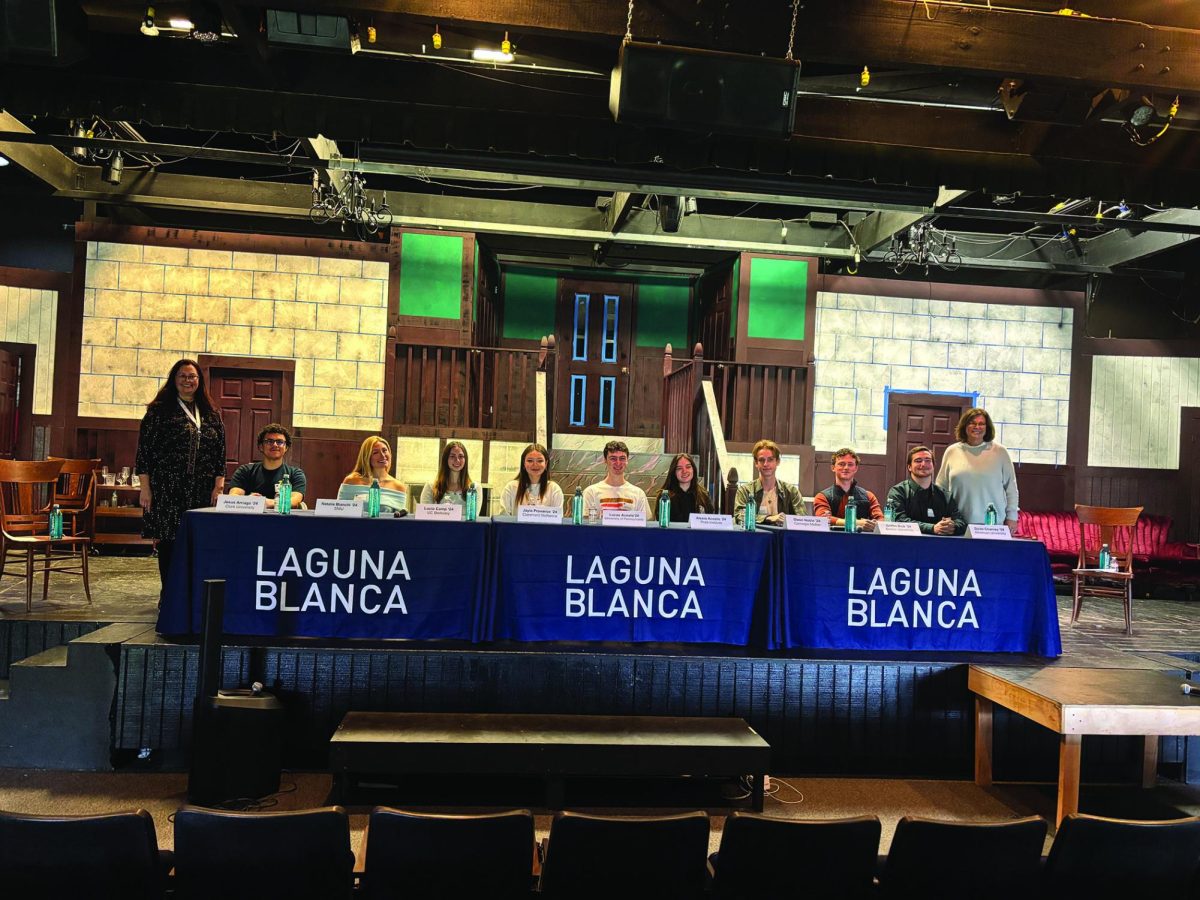Pandemic Perseverance
“Closed” signs appeared in almost every store window during the peak of the COVID-19 pandemic.
February 7, 2022
From March 2020 to January 2021, close to 40,000 restaurants closed in California. The road to normalcy has been rocky, and an end is still far from sight.
The National Academy of Sciences states that 43 percent of businesses in the United States temporarily closed due to COVID-19.
Many of those businesses reported that the challenges they faced derived from a significant concern surrounding the health of their employees.
Local business owner of Merci Montecito, Elizabeth Colling, experienced running a cafe during the pandemic first hand.
“We were so confused about what to do… I just immediately thought of just the safety of my family and employees.”
Montecito Country Mart is a small shopping and dining community center in Montecito.
The pandemic brought people together with the local community who showed support in new ways as businesses lost revenue while in-person opportunities diminished.
One group, The 93108 Fund, hosted the Montecito Cash Mob to help support the businesses that suffered.
This fund lasted from April to June 2020, with 257 generous contributors. The fund raised $70,000 by May 2020 for employees who were laid off, and within 10 days, collected $168,000 for local businesses.
“Maybe a hundred people ordered gift cards, and I would say that around 12 of them came to pick them up,” said Colling. “I feel like they were doing that to make more of a donation than even to then come and use the gift card.”

The Center for Disease Control and Prevention’s six-foot social distancing requirement forced businesses to incorporate new designs. Many created outdoor areas for customers to feel safer.
On May 22, 2020, State Street closed access for automobiles to become a promenade and provide safety for outdoor eating.
The International Monetary Fund reports that the global GDP (gross domestic product) will decrease by 3 % because of the drastic impact of COVID-19.
While most shop owners had to limit their inventory, the fluctuation of demand has varied.
A second survey sent out by the International Textile Manufacturers Federation reported a 31 % decline for global textile orders in 2020.
The Santa Barbara Better Together Fund Small Business Grant Program funded $500,00 in March 2020 for struggling businesses in the community.
“We closed on, I think like Saturday the twentieth, March [2020]… so we ended up staying closed until May 1, and in that time, we applied for a PPP loan and an EIDL loan,” Colling said.
Federal programs like the Paycheck Protection Program (PPP) allowed many small businesses to pay their employees by giving them loans for their paycheck costs. EIDL is a loan program that assists small struggling businesses.
When vaccines became more available during March 2021, it allowed for more opportunities, higher customer capacity, and hiring new employees.
Eventually, tourists returned to explore and shop in the Santa Barbara community and business resumed as normal–for the most part.
“Locals and tourists alike, I feel like that summer was the turning point that really took us to another level and it has been so good for our sales,” Colling said.


































